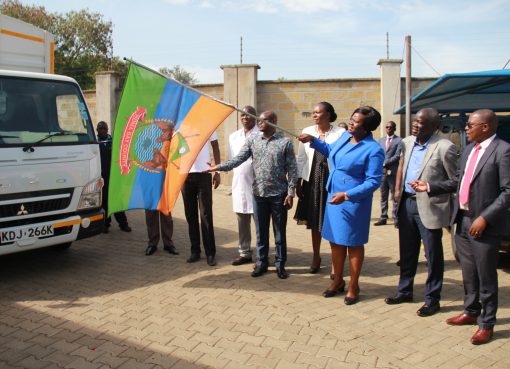Kenya has opened up its air space with domestic flights planning to resume on the 15th of .9’ while the international flights will open up on 1st of August 2020.
This comes after three months of suspension of flight due to Covid 19 pandemic
Transport Cabinet Secretary James Macharia on Friday said people with signs such as high temperatures would however be put on mandatory quarantine once the flights resumed.
Since the announcement by the President on Monday 6th on the reopening of air trnsport, stakeholders in the industry have been gearing up and trying to ensure that they adhere to the required protocols before the D-day.
However, World Health Organizations (WHO) has warned governments especially in Africa to take effective measures to mitigate the risk of a surge in infections as they resumed commercial flights and airport operations.
Thirty-six countries in Africa closed their borders to international travel, eight suspended flights from countries with high COVID-19 transmission while others had partial or no restrictions. So far Cameroon, Equatorial Guinea, Tanzania and Zambia have resumed commercial flights and now Kenya is following suit.
WHO says that while open borders are vital for the free flow of goods and people, initial analysis found that lockdowns along with public health measures reduced the spread of COVID-19.
“Air travel is vital to the economic health of countries,” said Dr. Matshidiso Moeti, WHO Regional Director for Africa. “But as we take to the skies again, we cannot let our guard down. Our new normal still requires stringent measures to stem the spread of COVID-19,” he added.
To resume international air travel, WHO has recommended that countries assess the epidemiological situation to determine whether maintaining restrictions outweighs the economic costs of reopening borders.
“It is also crucial to determine whether the health system can cope with a spike in imported cases and whether the surveillance and contact tracing system can reliably detect and monitor cases,” Dr. Moeti said
WHO says comprehensive entry and exit screening should be considered based on risk assessment and cost-benefit analysis, and as part of the overall national response strategy.
Dr. Moeti however says that the resumption of commercial flights in Africa would in a positive way be able to facilitate the delivery of crucial supplies such as testing kits, personal protective equipment and other essential health commodities to areas which need them most.
According to the International Air Transport Association, the impact of COVID-19 on airlines is likely to be severe with the African airlines losing Sh 630 billion (USD 6 billion) of passenger revenue compared to 2019.
Job losses in aviation and related industries could also grow to 3.1 million, half of the region’s 6.2 million aviation-related employment.
In the worst-case scenario, an analysis by the International Civil Aviation Organization says that international air traffic in Africa could see a 69 percent drop in international traffic capacity and 59 percent decline in domestic capacity.
Kenya airways had at the end of last month reported that since January, they had probably lost around Sh10 billion in revenue and further predicted a Sh50 billion loss by December in the wake of the Coronavirus pandemic.
The Covid 19 pandemic had also seen massive layoffs as the airline was trying to adjust to the new normal with over 183 pilots and more than 400 cabin crew facing job losses.
By Wangari Ndirangu




